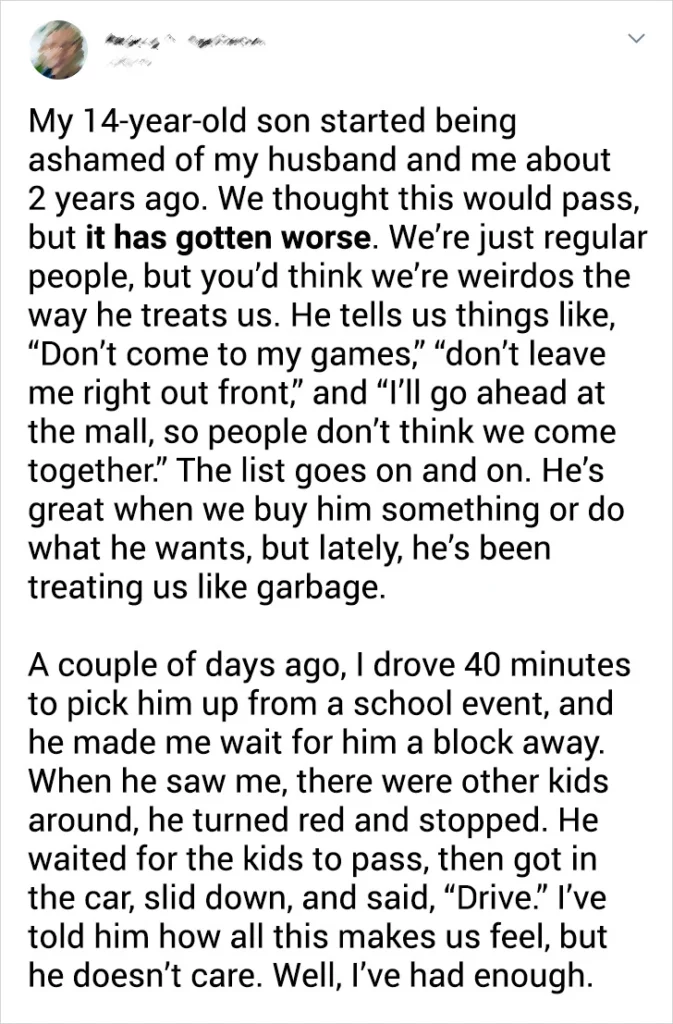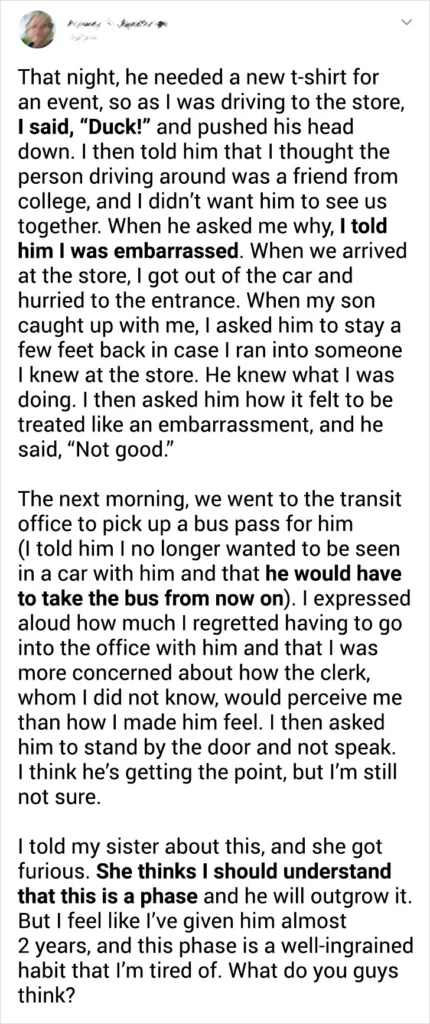Adolescence, often characterized by emotional turbulence, rebellion, and the quest for independence, presents a unique set of challenges for both teenagers and their parents. This transition from childhood to adulthood is filled with moments of growth, self-discovery, and inevitable friction. However, amidst the chaos and uncertainty, lies an opportunity for parents to cultivate patience, understanding, and encouragement.
During their teen years, youngsters strive for autonomy and independence, and sadly, this sometimes results in conflicts with their parents.
Most often, moms and dads out there struggle to balance between granting independence and maintaining authority.
In this rather complex relationship, parents need to learn when to loose their reins and when to provide guidance while maintaining open communication.
A mom shared how her son felt ashamed of her and her husband. He didn’t want to be seen with them, and even asked to be left a block away from where he was supposed to be so that he friends won’t see it is his parents who give him a ride.
In an attempt to teach him a lesson, the mom decided to act the same way.
Take a look at her story below.
As she felt she could no longer put up with his behavior, she decided to take things in her own hands and deal with the “issue” the best way she could.
If you are a parent of a teenager and you somehow find yourself in a similar situation consider some of these strategies:
1. Don’t take it personally: Keep in mind that you once was a teenager and that adolescence is a tumultuous period, and such behavior is a natural part of it. Your child’s action isn’t truly a reflection of your worth as a parent.
2. Avoid conflict: While parents typically desire respectful communication from their children, there may be times when they express themselves using inappropriate language. Instead of immediately reprimanding them, consider ending the conversation.
3. Give them attention and affection on their own terms: The truth is that the more you try to be close with them, the more they push back. In order to create a better relationship with your teenage child, try to offer them some of the autonomy they long for. When you express a desire to spend time with them let them decided when and where they would like you to go.
4. Talk to other parents: Make sure you stay in touch with other parents who are raising teenagers and share experiences.
5. Remember how you felt at their age: Practicing empathy can help you understand your child’s perspective and realize that their actions aren’t personal attacks. Reflecting on your own experiences during that time can serve as a helpful reminder of this common dynamic.






0 comment: